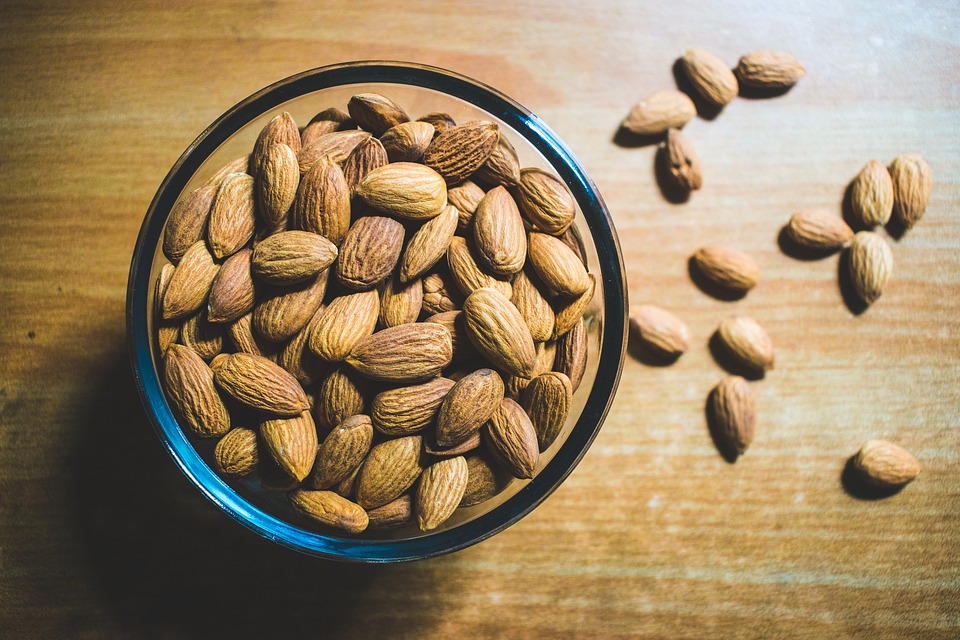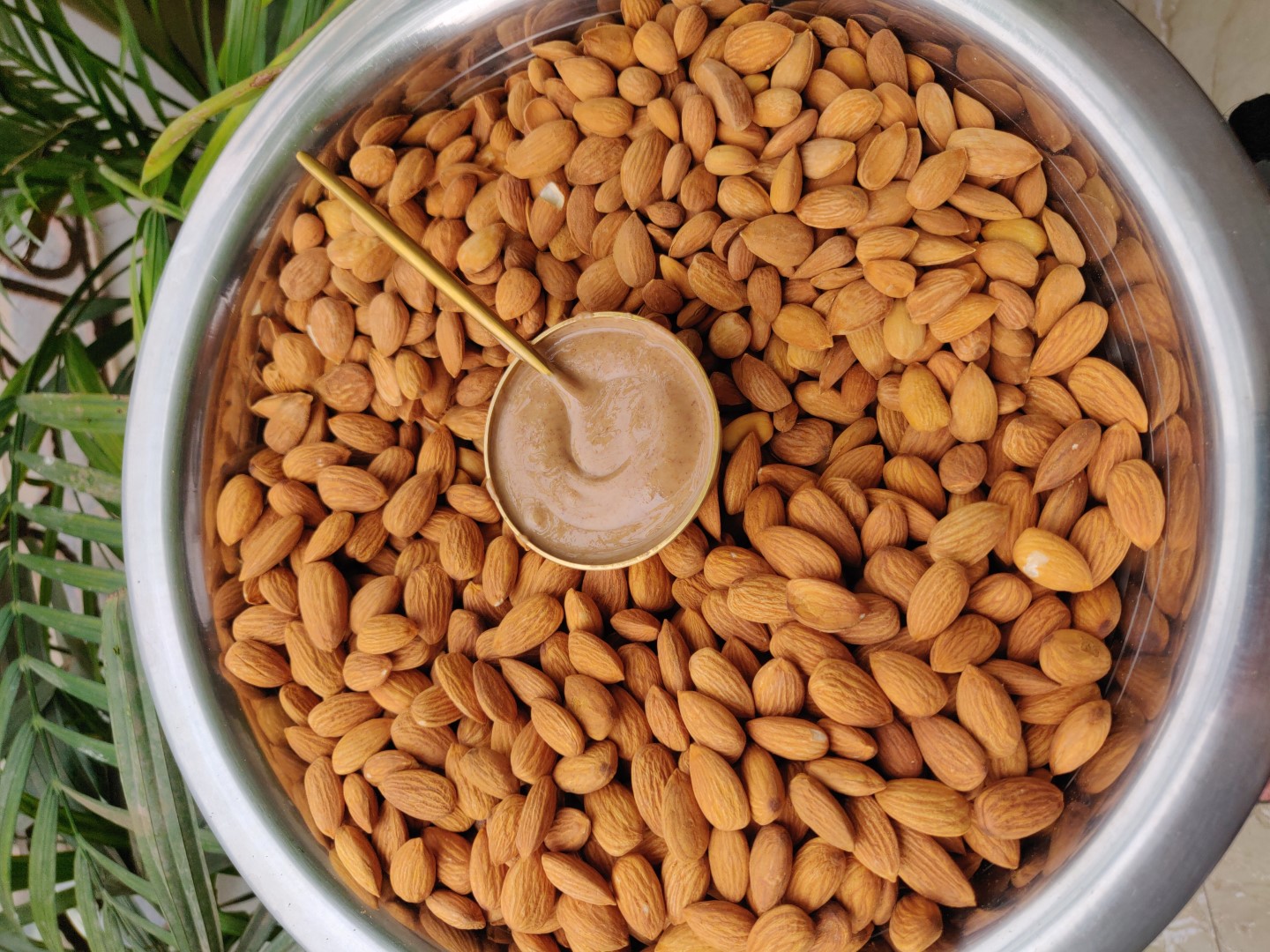
Hello, health enthusiasts! 🙋♀️🙋♂️ Today, we’re going to explore the amazing world of almonds and their incredible health benefits. So, buckle up and get ready to discover why almonds are the secret weapon you need in your health and weight loss journey. 🌰
🏋️♀️🏋️♂️ Almonds and Weight Loss: A Winning Combination
Almonds are not just tasty snacks. They are nutritional powerhouses that can play a significant role in weight loss. But how exactly do almonds contribute to weight loss? Let’s dive in. 🕵️♀️🕵️♂️
- Packed with Protein: Almonds are a great source of protein. According to the USDA, a single ounce of almonds (approximately 22 nuts) contains 6 grams of protein. Foods rich in protein are known to increase feelings of fullness, which can help control your appetite and reduce overall calorie intake. This can be particularly beneficial if you’re trying to lose weight.
- Backed by Science: The connection between almonds and weight loss is not just anecdotal. It’s backed by science. A study published in BMJ Nutrition, Prevention & Health found that replacing certain foods with nuts, including almonds, can lead to more successful weight loss. The study suggests that eating at least half an ounce of nuts each day can lower your risk of gaining 11 or more pounds. So, almonds can indeed be your weight loss superheroes! 🦸♀️🦸♂️
🌟 Beyond Weight Loss: The Health Benefits of Almonds
1. Boost Your Heart Health ❤️: Almonds are rich in monounsaturated fats, the same type of health-promoting fats found in olive oil, which have been associated with reduced risk of heart disease. In fact, a study titled “Effects of Daily Almond Consumption on Cardiometabolic Risk and Abdominal Adiposity in Healthy Adults With Elevated LDL-Cholesterol: A Randomized Controlled Trial” found that daily almond consumption may be a simple dietary strategy to prevent the onset of heart-related diseases. 🏥
2. Manage Your Weight ⚖️: Struggling with hunger pangs when trying to lose weight? Almonds to the rescue! A study titled “Appetitive, dietary and health effects of almonds consumed with meals or as snacks: a randomized, controlled trial” found that almonds reduced hunger and desire to eat, making them a perfect snack for weight management. 🥊 For more insights on how almonds can aid in weight loss, check out this Masala Monk blog post.
3. Control Blood Sugar Levels 🩸: Almonds have a low glycemic index, meaning they’re less likely to spike your blood sugar levels. Plus, they’re rich in magnesium, a mineral involved in blood sugar control. So, if you’re watching your sugar, don’t forget to include almonds in your diet. 🎯
4. Promote Digestive Health 🦠: The fiber in almonds isn’t just good for keeping you full. It also aids in digestion and promotes gut health. So, munching on almonds can keep your digestive system running smoothly. 🚂
5. Improve Skin Health 🌞: Almonds are rich in vitamin E and antioxidants, which are beneficial for skin health. They can help combat the effects of aging and may even have a positive impact on acne management. For more on this, read this Masala Monk blog post.
6. Enhance Brain Health 🧠: Almonds contain riboflavin and L-carnitine, nutrients that can boost brain activity and may also reduce the risk of Alzheimer’s disease. For a deep dive into how almonds can benefit your brain, memory, and concentration, check out this Masala Monk blog post.
7. Support Pregnancy Health 🤰: Almonds are a good source of folic acid, which is crucial for the healthy development of the fetus. They can also help manage blood sugar levels and prevent gestational diabetes. For more on this, read this Masala Monk blog post.
8. Aid in Intermittent Fasting ⏱️: While almonds do contain calories and technically break a fast, they can be a great inclusion during the eating window of intermittent fasting due to their high fiber and protein content. For more insights on this, check out this Masala Monk blog post.
🍴 How to Incorporate Almonds into Your Weight Loss Diet:
Adding almonds to your diet is easy-peasy! 🍋 Here are some delicious ways to enjoy almonds:
- Snack on Them: A handful of raw or roasted almonds makes a perfect snack. They’re portable and non-perishable, making them a great on-the-go option.
- Sprinkle Them: Add a crunch to your salads, yogurt, or oatmeal by sprinkling some chopped almonds on top.
- Blend Them: Add a scoop of almond butter to your morning smoothie for a protein boost.
- Bake with Them: Use almond flour in your baking for a nutritious twist. It’s a great way to make your favorite baked goods gluten-free!
- Cook with Them: Almonds can be used in a variety of dishes, from chicken almondine to almond-crusted fish. They add a nice crunch and flavor to your meals.
Remember, almonds are versatile and delicious, making them easy to incorporate into your diet. 🌈
🍽️ The Art of Consuming Almonds for Weight Loss
Knowing the benefits of almonds is one thing, but how should you incorporate them into your diet for maximum weight loss benefits? Here are some tips:
- Mindful of Portions: While almonds are high in fat and calories (161 calories and 14 grams of fat per ounce), these fats are mostly healthy monounsaturated fats. However, consuming too many almonds can lead to a calorie surplus, which can hinder your weight loss efforts. So, it’s best to stick to a serving size of about 22 almonds.
- Versatility is Key: Almonds are incredibly versatile. You can enjoy them in various ways – as a snack, added to your salads, or included in your breakfast cereals or yogurt. The key is to enjoy them in moderation. 🥗🥣
🎯 In Conclusion: Almonds – A Superfood Worth Incorporating
Almonds are a fantastic addition to a balanced diet. Whether you’re trying to lose weight or just aiming for a healthier lifestyle, almonds can be your go-to snack. Remember, moderation is key. Enjoy your almonds, and here’s to a healthier you! 🥂🎉
Remember, Masala Monk has a treasure trove of blog posts dedicated to almonds and their incredible benefits. If you want to dive deeper into the topics we discussed, check out these relevant blog posts:
- Weight Loss Success: Incorporating Almonds into Your Diet
- Almonds: 5 Benefits During Pregnancy
- Almonds: A Tiny Nut’s Big Impact on Acne Management
- Can We Eat Almonds During Intermittent Fasting?
- 10 Benefits of Eating Soaked Almonds Everyday
Explore these blog posts to discover more ways to infuse love and care into your family’s wellness journey. Together, let’s nurture and uplift one another, creating a legacy of health, happiness, and togetherness.
With almonds in our hands and love in our hearts, let’s celebrate the power of family and the joy of nourishing those we hold dear.
Cheers to a healthier, happier, and more connected family! 🌟✨
Stay tuned for more health and wellness tips. Until then, stay healthy, stay happy! 😊👋
Disclaimer: This blog post is for informational purposes only and should not be taken as medical advice. Always consult with a healthcare professional before making any changes to your diet or exercise routine.












